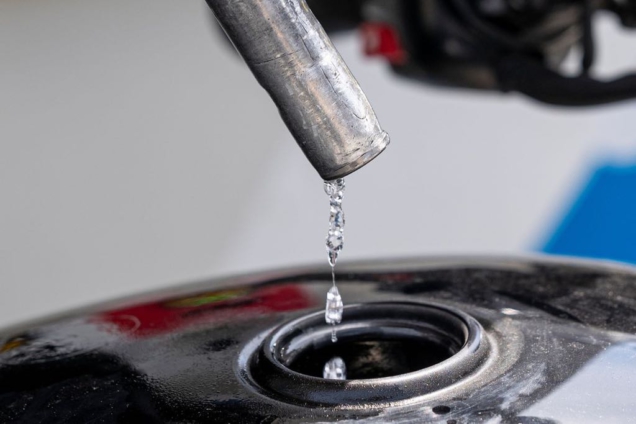Oil sector records 33% decline in H1 surface rental revenue
Ghana has reported a significant drop in revenue from Surface Rentals, also known as acreage fees, in the first half of 2024 despite recording a 55.6 percent increase in total petroleum receipts for the period, according to the Public Interest and Accountability Committee (PIAC).
A total lodgment of US$840,765,266 was made into the Petroleum Holding Fund (PHF) as petroleum receipts for H1 2024 compared with US$540,456,124 for the same period in 2023, mainly due to increased production for the period.
The revenues were derived from Corporate Taxes, Surface Rentals (Acreage Fees), Crude oil liftings, Interest on the PHF and other income.
This amount is the highest revenue the country has recorded out of its cumulative petroleum revenue of US$10.69billion from 2011 to date.

However, the total Surface Rentals receipt of US$439,011 represents a 33 percent decrease compared to the US$659,118 collected during the same period in 2023. This has led to an increase in Surface Rental arrears of US$1.2million excluding that of the terminated Petroleum Agreements (PAs).
The decline, detailed in PIAC’s 2024 Semi-Annual Report, has been attributed to various factors… primarily payment delays by key players in the sector.
According to the Ghana Revenue Authority (GRA), Goil Upstream Limited failed to pay its 2024 acreage fees citing ongoing negotiations to integrate outstanding liabilities inherited from Exxon Mobil. Exxon Mobil lately vacated its oil block, leaving arrears that Goil Upstream is now grappling with.
Additionally, Springfield Exploration Limited – a significant contributor to surface rental revenue – has yet to settle its liabilities despite receiving demand notices. Financial difficulties faced by Medea Development Limited are said to have further compounded the shortfall.
Medea is reportedly in discussions with the Ministry of Energy to secure a suitable partner, which could stabilise its operations and improve its ability to meet financial obligations.
These challenges come amid growing scrutiny of the country’s oil and gas sector, with PIAC emphasising the importance of timely payments to sustain public revenue streams.
Surface Rentals, though a relatively small component of total oil revenue, are crucial for administrative oversight and the broader fiscal framework of the upstream petroleum industry.
The decline has raised concerns about fiscal discipline and the need for strengthened enforcement mechanisms to ensure compliance by industry players.
PIAC, in its latest report, reiterated that the Ghana Revenue Authority (GRA) should take immediate steps to recover the Surface Rentals outstanding and also ensure that Surface Rentals assessed be paid into the Petroleum Holding Fund (PHF) not later than 28th February of each year, as provided in Regulation 5 (1) (b) of Legislative Instrument (L.I.) 2381.
According to PIAC, the Compliance, Enforcement and Debt Management (CEDM) Unit of GRA has issued garnishee orders on some defaulters.
One of the four defaulters, Sahara Energy Limited who had their PA terminated, is reported to have paid its principal liability of US$71,935 in 2022 – taking advantage of the Tax Amnesty granted taxpayers to have its penalty of US$21,943,750 waived by the Commissioner General in accordance with the law.
PIAC also reported that GRA indicated a misclassification of Corporate Income Tax payment on 24th April 2024 totalling US$141,938 from Kosmos Energy Gh. Investments as Surface Rental in the PHF.
The anomaly, however, did not affect the total sum in the PHF for the period under review but was duly brought to the Bank of Ghana’s (BoG) attention.



